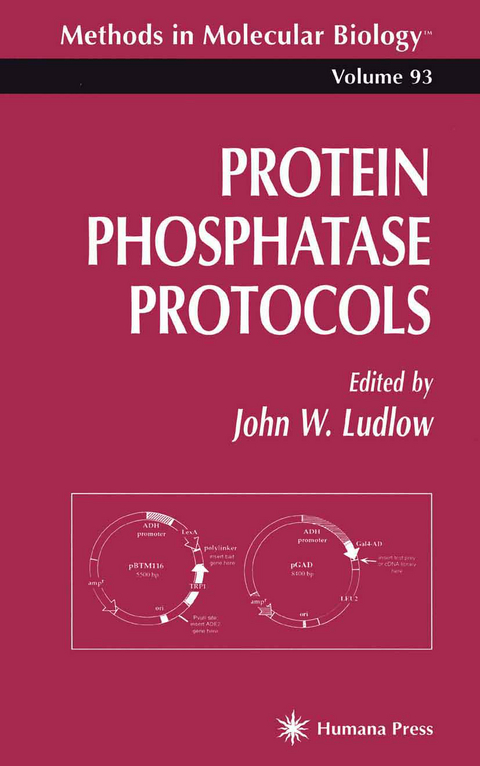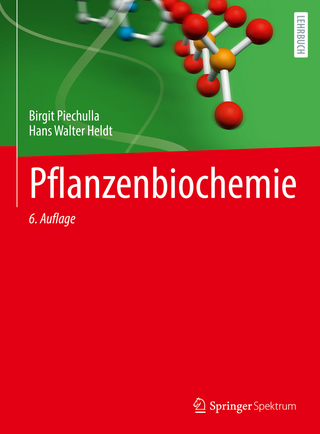
Protein Phosphatase Protocols
Humana Press Inc. (Verlag)
978-1-4899-4276-0 (ISBN)
Prokaryotic Protein-Serine/Threonine Phosphatases.- Protein Phosphatase Type 1 and Type 2A Assays.- Analyzing Gene Expression with the Use of Serine/Threonine Phosphatase Inhibitors.- Inhibitor-1, a Regulator of Protein Phosphatase 1 Function.- I1 PP2A and I2 PP2A.- Control of PP1 Activity Through Phosphorylation by Cyclin-Dependent Kinases.- Regulation of Neuronal PP1 and PP2A During Development.- PTPA Regulating PP2A as a Dual Specificity Phosphatase.- Microinjection and Immunological Methods in the Analysis of Type 1 and 2A Protein Phosphatases from Mammalian Cells.- Use of Immunocomplexed Substrate for Detecting PP1 Activity.- The Biochemical Identification and Characterization of New Species of Protein Phosphatase 1.- The Relationship Between Insulin Signaling and Protein Phosphatase 1 Activation.- Analysis of the Isoforms of Protein Phosphatase 1 (PP1) Isoforms with Polyclonal Peptide Antibodies.- Expression of Mouse Protein Phosphatase 2C in Eschericia coli and COS 7 Cells.- Expression of Functional Protein Phosphatase 1 Catalytic Subunit in E. coli.- Protein Phosphatase 2A and Protein Phosphatase X Genes in Arabidopsis thaliana.- Separation of Protein Phosphatase Type 2C Isozymes by Chromatography on Blue Sepharose.- Chromatographic Isolation of PP2A from Limulus Lateral Eyes.- Purification and Assay of the Ptc/Tpd1 Protein Phosphatase 2C from the Yeast Saccharomyces cerevisiae.- Molecular Cloning of Protein Phosphatase Type 2C Isoforms from Retinal cDNA.- Analysis of Protein Interactions Between Protein Phosphatase 1 and Noncatalytic Subunits Using the Yeast Two-Hybrid Assay.- Identifying Protein Phosphatase 2A Interacting Proteins Using the Yeast Two-Hybrid Method.- Protein Phosphatase 2A Regulatory Subunits.- Synthetic Lethal Screening in Protein PhosphatasePathways.- The Search for the Biological Function of Novel Yeast Ser/Thr Phosphatases.
"I would highly recommend this volume for anyone wishing to develop or optimize Ser/Thr protein phosphatase assays and/or biochemical procedures in their laboratories."-The Quarterly Review of Biology
| Reihe/Serie | Methods in Molecular Biology ; 93 |
|---|---|
| Zusatzinfo | XIII, 316 p. |
| Verlagsort | Totowa, NJ |
| Sprache | englisch |
| Maße | 152 x 229 mm |
| Themenwelt | Naturwissenschaften ► Biologie ► Biochemie |
| ISBN-10 | 1-4899-4276-9 / 1489942769 |
| ISBN-13 | 978-1-4899-4276-0 / 9781489942760 |
| Zustand | Neuware |
| Haben Sie eine Frage zum Produkt? |
aus dem Bereich


